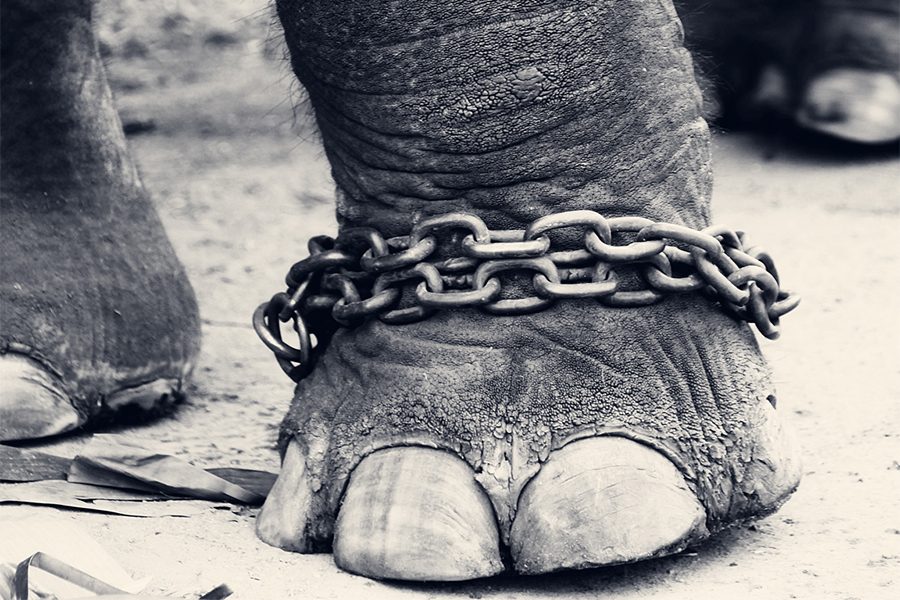Treatment of animals raising questions about conditions of circus
An annual staple of Topeka, the Arab Shrine Circus came to Topeka on Feb. 15, and along with the show came questions. Facebook posts showed elephants in questionable health, prompting me to wonder about circus animal care. These animals are forced to live in tough conditions from a young age, and the circus life creates its own challenges.
National Geographic says, “Animal welfare experts have found that it’s grueling and stressful for animals to always be on the road, confined to tight spaces, and made to perform before screaming audiences.”
According to apnm.org, “Elephants live over 70 years in their natural habitat; the average lifespan of a captive elephant is 14 years,” and they are often euthanized for “captivity-induced foot problems and arthritis.”
Not only are the animals in danger, having circus animals also threatens the performers. President and CEO of the Humane Society of the United States says, “Wild animals, even if they’re born in captivity, retain all their natural instincts.”
In March of 2017, the Traveling Exotic Animal and Public Safety Protection Act (TEAPSPA) introduced a bill that prevents using exotic or wild animals to be used in performances. In this bill, Congress stated that among other concerns, that “It is not possible to provide or ensure public and worker safety.”
Fortunately for the animals, circuses are beginning to shut down. The Ringling Bros. and Barnum & Bailey Circus reported by USA Today shut down in 2017 due to “operating costs and long, costly legal battles with animal rights groups.”
TEAPSPA also stated that Congress found, “exotic and wild animals are forced to perform unnatural tricks requiring extreme physical coercion, including, but not limited to the use of food and water restrictions, electric shock devices, bullhooks, metal bars, whips, shovels, and pitchforks, among other abuses.”
Other circuses though are still traveling with their animals in the same conditions. One easy way to help these animals is to sign petitions to prevent animal circuses or to spread the word about the treatment of these animals. People who are concerned with the safety of circus animals can also help TEAPSPA by calling local senators and representatives and asking them to support the act.












